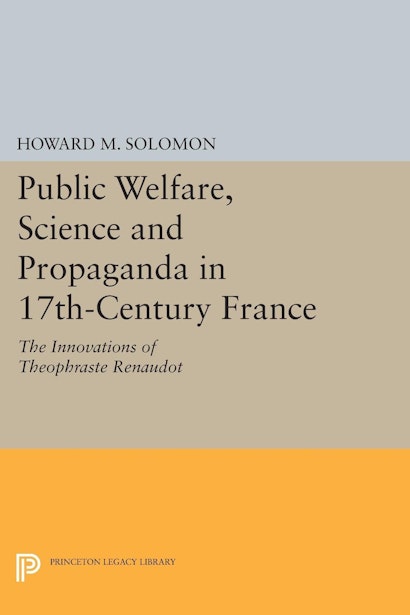Public Welfare, Science and Propaganda in 17th-Century France: The Innovations of Theophraste Renaudot


Hardcover
- Price:
- $125.00/£105.00
- ISBN:
- Published:
- Apr 19, 2016
- Copyright:
- 1972
- Pages:
- 308
- Size:
- 6 x 9.25 in.
Paperback
ebook
Public medicine, popular education, state employment agencies, the diffusion of scientific and technical knowledge, the dissemination of information by the government—all these things are an indispensable part of the modern state. All were proposed in the seventeenth century by Théophraste Renaudot, who felt they were necessary to meet the new social realities of the time.
With the support of Cardinal Richelieu he was able to attack the problem of poverty in a new way by setting up the Bureau d’Adresse, which grew from an employment agency to a clearing- house for many social services, including free medical care. The discussions that were held there made it the most popular academy in Europe and the forerunner of the Académie Française. At the same time Renaudot was editing and publishing the Gazette, an important instrument of government propaganda.
Howard M. Solomon considers each aspect of Renaudot’s multi-dimensional career and examines the relationship between his activities and the needs and methods of the ministries of Richelieu and Mazarin. While they had Richelieu’s support all his novel schemes flourished, but only the Gazette survived the Cardinal’s death.
Originally published in 1972.
The Princeton Legacy Library uses the latest print-on-demand technology to again make available previously out-of-print books from the distinguished backlist of Princeton University Press. These editions preserve the original texts of these important books while presenting them in durable paperback and hardcover editions. The goal of the Princeton Legacy Library is to vastly increase access to the rich scholarly heritage found in the thousands of books published by Princeton University Press since its founding in 1905.